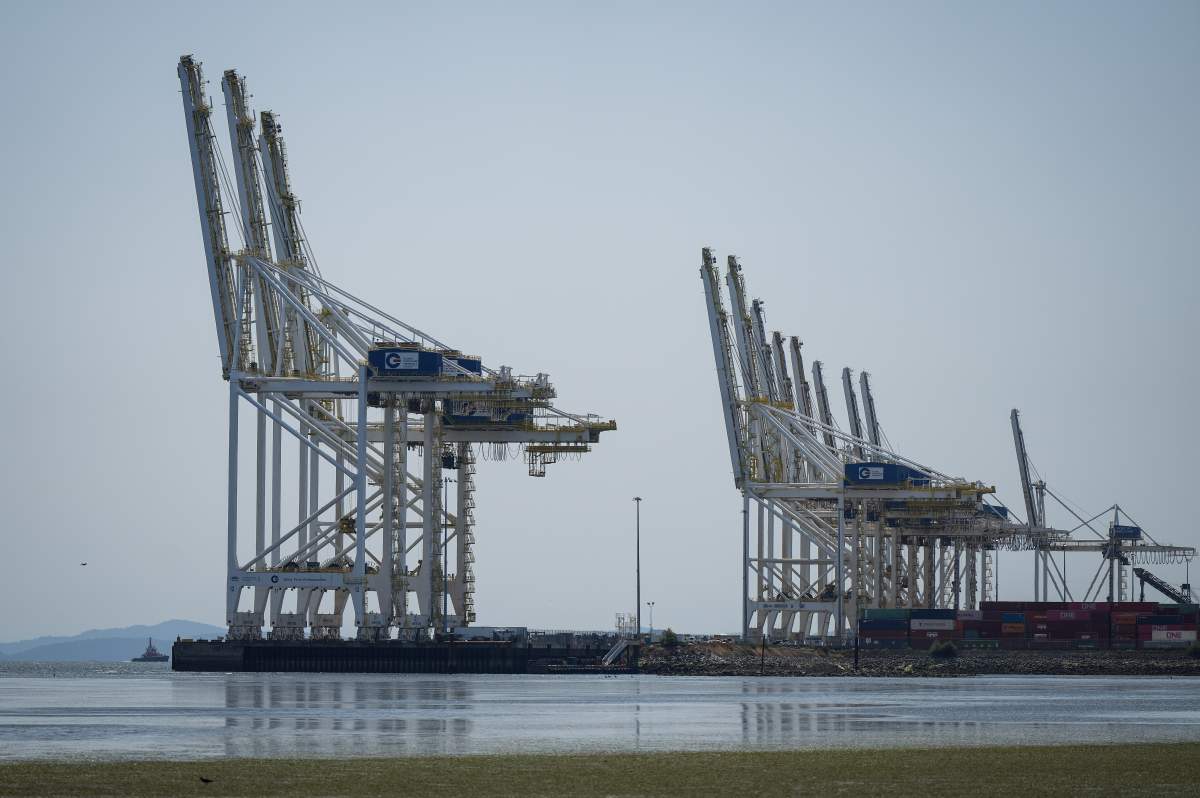A port strike in British Columbia that is estimated to be costing the Canadian economy at least $500 million a day entered its 10th day Monday with no signs of ending soon.

Roughly 7,400 members of the International Longshore and Warehouse Union Canada (ILWU) employed at more than 30 ports in the province have been on strike since Canada Day.
Talks between the union and the British Columbia Maritime Employers Association (BCMEA) resumed on Saturday after breaking down earlier in the week. Ottawa and provincial governments had urged both sides to restart talks.

Canadians across the country might see the price of goods push higher the longer the strike goes on, experts have said. The work stoppage is disrupting $500 million in goods every day, industry group Canadian Manufacturers & Exporters estimates.
Here is what we know so far.
What led to the strike?
In early June, 99.24 per cent of the ILWU membership voted in favour of a strike after their last contract expired on March 30.
The ILWU did not provide a 72-hour strike notice on June 21, the earliest possible date for such an action, instead issuing it on June 28 alongside a statement that accused the employers’ association of demanding “major concessions” from the union despite “record profits during the COVID-19 pandemic.”
Not only are workers seeking higher wages, but the union also said it was seeking to protect members from the “erosion” of work stemming from outside contract workers and port automation.
BCMEA represents 49 private-sector employers operating in B.C. ports, and its website says the industry contributes $2.7 billion to Canada’s GDP while handling roughly 16 per cent of the country’s total traded goods, amounting to $180 billion in 2020.
Why is the strike persisting?
Talks between the two sides broke down two days into the strike over maintenance issues, resulting in calls from industry groups and governments for both sides to seek a resolution quickly.

Get breaking National news
Prime Minister Justin Trudeau said on July 7 that Ottawa will continue putting pressure on both sides to end the strike. Federal Labour Minister Seamus O’Regan has urged the two sides to use mediators and resume talks.
Several organizations in Saskatchewan have called on the federal government to help resolve the strike; Saskatchewan Premier Scott Moe said in a July 7 tweet that “the federal government needs to be exploring all options to end this costly and economically damaging strike.”
Alberta Premier Danielle Smith said in a statement July 8 that her province – which she said shipped $12.4 billion of Alberta’s merchandise exports through ports in Vancouver and Prince Rupert in 2021 – supports an immediate recall of Parliament to consider legislation to end the strike.
Members of the provincial political party BC United as well as the Council of Forest Industries and other groups are also demanding federal legislation to end the strike.
What's at stake?
The strike is snarling traffic at the Port of Vancouver — Canada’s busiest port — as well as roughly 30 marine gateways across B.C.
The seamless loading and unloading of cargo ships in B.C. is critical to the smooth functioning of Canada’s economy, and an extended disruption is certain to impact consumers, according to experts who previously spoke to Global News.
B.C. ports handle an estimated 25 per cent of all imports and exports in Canada worth an estimated $350 billion last year alone, said Fraser Johnson, professor of operations management at the Ivey School of Business in London, Ont.

Johnson said many retailers are currently stocking up for their fall inventories, and a protracted strike could see delays in when those products hit the shelves.
Other shipments that have yet to arrive could be diverted to other ports in the U.S. or the Port of Montreal or Halifax, he said as an example.
But adapting shipping routes comes with costs that have knock-on effects through Canada’s supply chain, he said, which are likely to be passed on to consumers in some form or another.
Pedro Antunes, chief economist at the Conference Board of Canada, told Global News a prolonged strike of a week or more could start to have a tangible impact on inflation, just as price pressures are showing signs of easing.
What's happening now?
Both sides sat down for talks on Saturday, BCMEA said.
It said it tabled a revised proposal, and proposed a committee and independent arbitrator to make recommendations related to key sticking points around maintenance work.
In its latest statement, BCMEA said an arbitrator could make non-binding recommendations to help parties consider whether union members could perform some or all of the maintenance work in question.

It said also their side also proposed increased benefits for casual tradespeople and more apprenticeships, but the union rejected the ideas.
The union did not immediately release its position on the meeting, but has previously accused employers of waiting for the federal government to do their “dirty work” instead of negotiating.
BCMEA has accused the union of trying to “aggressively expand” its control of maintenance duties beyond what has been established for decades.

It’s unclear when the two sides will talk next.
BCMEA has said it’s awaiting further direction from federal mediators.
— with files from Global News’ Craig Lord and The Canadian Press
- Carney says Canadian military participation in Middle East war can’t be ruled out
- More than half of small businesses say U.S. no longer reliable: CFIB data
- The Bank of Canada says these are the 3 warning signs for mortgage default
- Canadians want floor-crossing MPs to face ‘immediate’ byelections: poll











Comments
Want to discuss? Please read our Commenting Policy first.